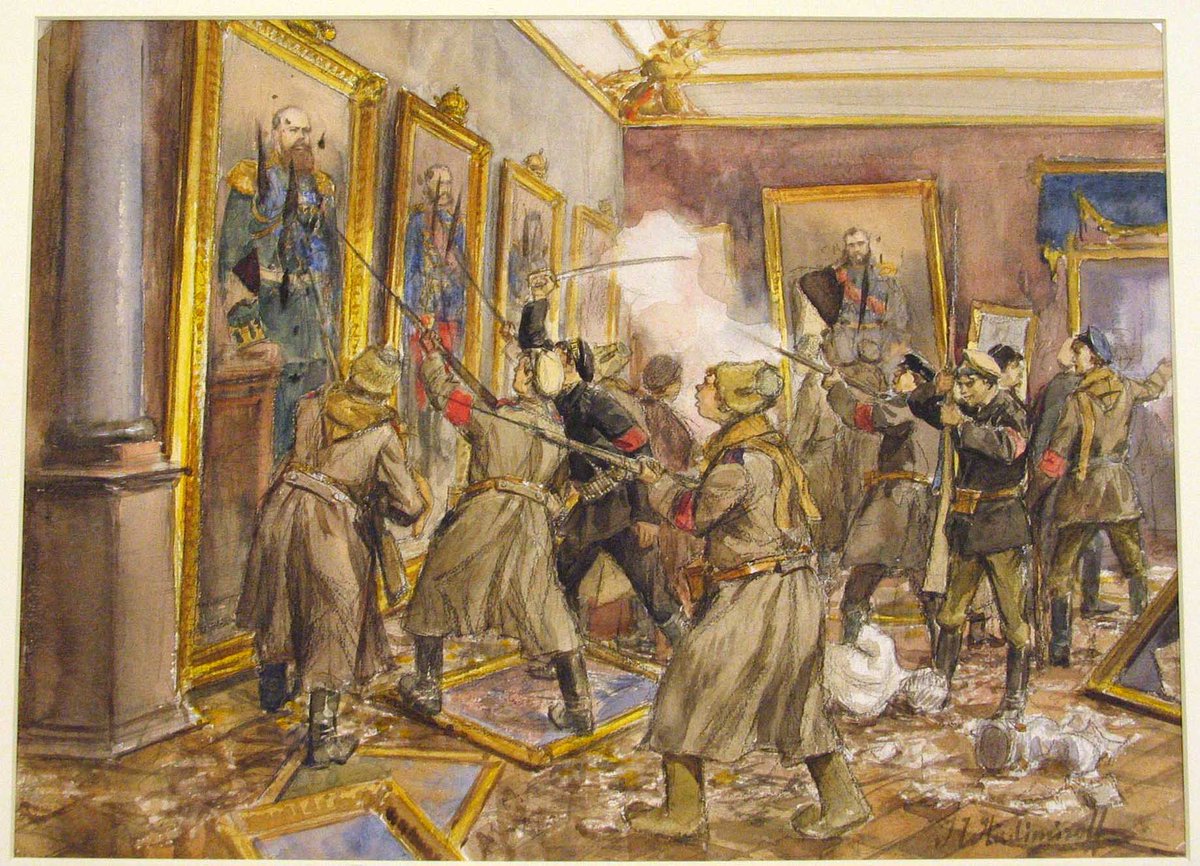We presume that history moves by "reasonable" things happening. More importantly though, it moves through crazy stuff nobody had expected. That stuff may seem reasonable now, retrospectively, but previously it would have been dismissed as impossible/improbable. Until it happened
https://twitter.com/OzKaterji/status/1559847439435194369
That's crucial for understanding both economy and politics. In fact, many seemingly reasonable scenarios had not happened and won't happen *exactly* because they are too reasonable = foreseeable = preventable. Consider the October Revolution. It happened *because* it was insane
In March 1917 Tsar was overthrown and a coalition of various oppositional forces became the Provisional Government. What could they legitimately fear? A military coup and a subsequent military dictatorship ofc. Experience of English and French revolutions suggested exactly that 

A reasonable analyst would've said that it is the Commander-in-Chief General Kornilov whom the Prime Minister Kerensky should legitimately fear. Indeed, the military dictatorship by Kornilov looked very plausible in summer 1917. That's why Kerensky made every effort to prevent it 

Indeed, in September 1917 Kornilov attempted a military coup. Kerensky had foreseen it. He mobilised all political forces to stand against Kornilov. Including the Bolsheviks ofc. The government encouraged and assisted the mass expansion & armament of the Bolshevik paramilitary 

In November 1917 Provisional Government was overthrown by a coalition of the radical left military & paramilitary, including the Bolsheviks, the anarchists, the left Socialist Revolutionaries, etc. Whose build-up the same government had encouraged just a couple of months before 

October Revolution is not an exception. It is a rule. Very often, probably more often than not, a power is overthrown by those they helped, promoted, assisted, rather than by those whom they persecuted severely. Because those whom they persecuted for real had been selected out 

Provisional government feared a new Bonaparte. So it prevenedt this scenario. It didn't fear the Bolsheviks that much. In September they even tried to weaponise them against Kornilov. Two months later, they were overthrown by those they had tried to weaponise. Many such cases! 

Reasonable scenario had been prevented. Therefore, the unreasonable and absurd scenario turned into reality. Because it was so absurd, that the old powers did not even put much effort into preventing it. They tried to use Bolsheviks as a tool and the tool backfired 

Picturing the October Revolution as purely Bolshevik is wrong. It was a broad assabiyah of various radical left that overthrew the government. In several years, Bolsheviks cleansed them all. They hadn't seen it coming either. That was too absurd to even consider. Thus it happened 

History doesn't move by likely and reasonable stuff happening. In fact, those in power put great effort into preventing the negative (from their perspective) *reasonable* scenarios and usually succeed. That's why the dumb and unreasonable stuff becomes the game changer. The end 

• • •
Missing some Tweet in this thread? You can try to
force a refresh





